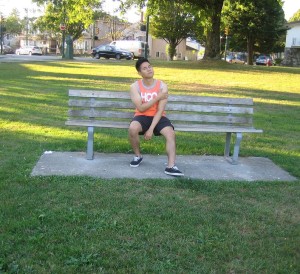Rotator cuff tendonitis is a degenerative condition that affects one or several of the rotator cuff tendons in the shoulder. It is the usual cause of shoulder pain that manifests gradually over time or after a strain on the rotator cuff that did not properly heal.
What are the indications?
- Shoulder pain while at rest during certain movements or at night time
- Pain or discomfort during overhead activity such as racket sports or swimming
- Tenderness if the affected tendon is pressed which also feels thick
- Creaking sensation called crepitus can be felt if the shoulder is moved
Shoulder pain while at rest during certain movements or at night time.
In most cases, the individual might have a previous injury such as a partial dislocation or rotator cuff strain. The doctor might require an MRI to confirm a diagnosis as well as identify any tearing in the tendon.
Possible causes
Rotator cuff tendonitis has various causes that you should be familiar with such as:
- Overtraining – overuse either through exercise or work is the usual cause of rotator cuff tendonitis especially activities that involve repetitive overhead movements such as swimming, throwing and racket sports.
- Occupational – working for long hours in front of a computer is a contributing factor to overuse especially if the individual has a poor posture.
Management of rotator cuff tendonitis
The treatment for rotator cuff tendonitis is comprised of 2 parts. The initial objective is to manage the symptoms, minimize the pain and inflammation to allow normal movement. The second objective is to deal with the underlying causes.
Rest
It is vital to get enough rest from activities that triggered the pain. If the joint is still being used, it will take a longer time to heal and can become chronic. The fitness level can be maintained by engaging in other activities such as cycling or running.
Cold therapy
You can apply an ice pack to minimize the pain and inflammation. The ice pack must be applied every hour for 10 minutes and later reduced as the pain and inflammation settles.
Medications
The doctor might prescribe anti-inflammatory medications such as ibuprofen during the initial phases. The right dosage is usually given by the doctor.
Exercises
Once the inflammation and pain settles, exercise is vital as part of treatment for rotator cuff tendonitis. The normal functioning of the shoulder joint must be restored which involves releasing tension in tight muscles and strengthening the weakened ones.

